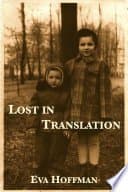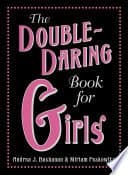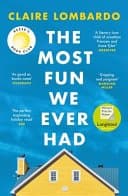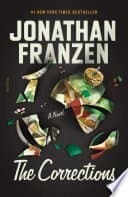Exploring Polish Life During WWII Through Compelling Narratives
Delve into the personal accounts of Polish life in WWII for deeper historical understanding and emotional connection.

Books Featured in This Article
Explore the books discussed

Exploring Polish Life During WWII Through Compelling Narratives
World War II was a turbulent era that reshaped nations and individual lives bearing the weight of turmoil, resilience, and hope. Poland, in particular, found itself at the epicenter of wartime devastation, as millions faced untold horrors and countless acts of courage. For those eager to peel back the layers of history and engage with Polish life during this pivotal chapter, literature offers a rich tapestry of voices waiting to be discovered.
"Understanding the personal experiences of those who lived through it can provide deep insights into the historical and cultural impact of the war."
Memoirs by Polish Holocaust Survivors
The heart-wrenching accounts from Polish Holocaust survivors shed light on the dark chapters penned during WWII. These personal narratives courageously confront the injustices and atrocities faced by individuals on a daily basis during the ghettos, concentration camps, and other oppressions. Through these words, we witness not only suffering but the indomitable spirit of human resilience.
Take, for instance, the vivid memoirs that recount tales of survival and undeterred hope amidst the bleakest circumstances. Exploring how these survivors navigated the perilous maze of war offers a vital window into understanding both the depths and heights of humanity. Their stories, as raw and challenging as they may be, remain essential learning chapters for us all.
Books by Children or Grandchildren of Survivors
Beyond the immediate horrors faced during WWII, the ripples of trauma have reverberated through generations. Works crafted by the descendants of these survivors reveal how the legacy of war shapes identities, questions, and aspirations today. Often, these narratives traverse the landscape of inherited trauma, reflecting on how their paths are marked by the shadows of history.
"These works provide a bridge between the past and the present, illustrating how the impact of WWII continues to resonate through generations."
Such narratives are imbued with a sense of searching and understanding, revealing how stories of societal upheaval are woven into the very fabric of their cultural tapestry. The resilience and continuity represented in these accounts forge connections that transcend time and geography, urging readers to piece together their own histories through empathetic lenses.
Cultural and Historical Context
To truly appreciate the landscape of Polish life during WWII, it is imperative to delve into the cultural and social dynamics that surrounded day-to-day existence. Literature can transport us into the heart of Poland’s traditions, its communal spirit, and the profound sense of identity that persisted even under the harshest of regimes.
Readers exploring such narratives should be prepared to embrace the everyday triumphs and tribulations of those who, against all odds, preserved their sense of cultural identity. Books providing this context not only enrich the understanding of the era but also champion the enduring spirit intrinsic to Polish identity.
The Power of Narrative in Understanding History
In the grand tapestry of WWII literature, Polish narratives serve as poignant reminders of the importance of remembrance and understanding. By immersing ourselves in these stories, we preserve the memories of those whose voices might otherwise fade with time. Engaging with these invaluable texts ensures that history remains a vibrant conversation, vivid with stories of resilience and the promise of remembrance.
"These narratives not only serve as a testament to the suffering and resilience of those who lived through such challenging times but also educate and inform future generations about the importance of remembrance and understanding history."
One such book that poignantly captures this spirit and exploration is Lost in Translation: A Life in a New Language by Eva Hoffman. Hoffman navigates challenges and discoveries in a post-war world, imprinting a deeply personal testament to the echoes of conflict in her journey of identity and belonging.
Through the lens of these compelling narratives, readers are granted access to worlds that inform and shape the collective memory. Whether they speak of pain, hope, loss, or triumph, each page turned is a bridge to deeper understanding, urging us to not just remember history but to learn from it.
Key Takeaways
Pros
- Memoirs provide firsthand accounts and insights into the resilience and human spirit during the Holocaust and WWII.
- Books by descendants bridge the past with the present, aiding in understanding inherited trauma and identity formation.
- Cultural and historical context enriches understanding, offering a well-rounded view of Polish life during occupation.
- Narratives from WWII ensure the preservation of history and facilitate remembrance and learning for future generations.
Cons
- Engaging with WWII literature can be emotionally challenging due to the traumatic and complex nature of the content.
- Without proper context, readers may misinterpret the impact of WWII, especially regarding its lasting effects on descendants.
Frequently Asked Questions
About the Author

Book Junkie
Your go-to source for book reviews and recommendations.
You Might Also Like
Related Books
Related Articles

Transformative Reads for Teens: Navigating Life at 17
Discover the power of literature with our curated list of essential books for 17-year-olds. From fiction that inspires self-discovery to empowering non-fiction, these reads provide guidance and comfort during the tumultuous teen years. Uncover the wisdom

Unlocking the Secrets of Dark Academia: A Must-Read List
Dive into the enchanting realm of dark academia with our curated list of gripping novels that explore obsession, psychological intricacies, and haunting atmospheres. Perfect for readers seeking literary adventures akin to films like *Kill Your Darlings* a

Unlocking New Chapters: Inspiring Books for Readers in Their 50s
Discover a curated list of transformative fiction and non-fiction books designed for readers in their 50s. Embrace change, find inspiration, and celebrate life's possibilities with these insightful reads.

Unlocking the Secrets of Monastic Life: 12 Novels Rich in Religious Intrigue
Dive into the captivating world of ancient monasteries and religious power struggles through our curated selection of novels. Discover tales that will enrich your understanding of history while satisfying your love for literary intrigue.


